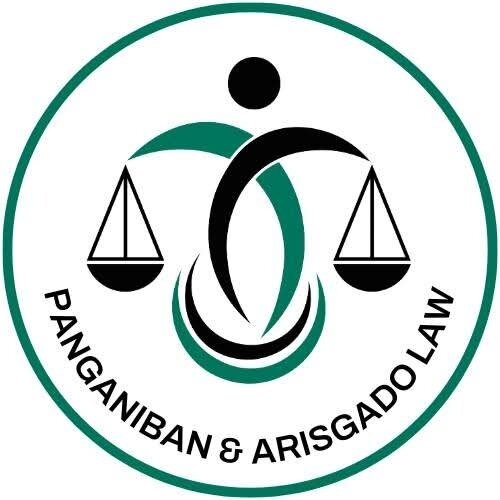Best Asylum Lawyers in Philippines
Share your needs with us, get contacted by law firms.
Free. Takes 2 min.
Or refine your search by selecting a city:
List of the best lawyers in Philippines
About Asylum Law in Philippines
The Philippines is a signatory to the 1951 Convention Relating to the Status of Refugees and its 1967 Protocol, demonstrating its commitment to providing protection and support to asylum seekers. Asylum seekers are individuals who flee their home country due to persecution based on race, religion, nationality, membership in a particular social group, or political opinion. The country’s commitment requires adherence to international human rights standards, and it also implements domestic laws and mechanisms to ensure the protection and fair treatment of asylum seekers.
Why You May Need a Lawyer
Navigating asylum procedures can be complex and challenging. A lawyer can provide invaluable assistance in several situations, including:
- Understanding and interpreting asylum laws and procedures in the Philippines.
- Assisting with the preparation and submission of a comprehensive asylum application.
- Providing representation in legal hearings or interviews regarding an asylum claim.
- Offering advice and guidance on rights and obligations while awaiting the outcome of an asylum claim.
- Helping to compile and present evidence of persecution that supports a claim.
Local Laws Overview
Though the Philippines does not have specific national legislation entirely dedicated to asylum seekers, it adheres to the UNHCR's guidelines and international standards. The Philippines' Department of Justice recognizes the UNHCR mandate and works closely with it for processing asylum applications. The Refugees and Stateless Persons Protection Unit (RSPPU) plays a key role in the evaluation and processing of asylum seekers' claims.
Applicants must demonstrate a well-founded fear of being persecuted for reasons mentioned above. The process includes registration, the determination of refugee status, and possibly granting asylum if recognized as refugees.
Frequently Asked Questions
What is asylum?
Asylum is the protection granted to foreign nationals who have fled their home country due to fear of persecution. It offers them the right to live in a foreign country safely.
What is the difference between an asylum seeker and a refugee?
An asylum seeker is someone who is actively seeking protection in another country but has not yet been granted refugee status. A refugee is a person who has already been recognized as needing protection under international law.
How can I seek asylum in the Philippines?
To seek asylum, you must approach the Department of Justice’s Refugees and Stateless Persons Protection Unit (RSPPU) and submit an application for refugee status.
What are my rights as an asylum seeker in the Philippines?
As an asylum seeker, you have the right to legal assistance, the right to adequate accommodation, the right to health care, and the right to protection from refoulement, which means not being forcibly returned to a country where you might face danger.
What happens after applying for asylum?
Your application will be reviewed by the RSPPU, and you may be called for an interview. The process involves assessment of your situation against international criteria to determine your status.
How long does the asylum process take in the Philippines?
The duration can vary based on the specifics of each case. However, it can take several months to a few years, depending on the complexity and volume of asylum applications received.
Can I work while seeking asylum in the Philippines?
Asylum seekers are not automatically granted the right to work. However, this can be determined on a case-by-case basis and subject to government policy.
What if my asylum application is rejected?
If your application is rejected, there may be a possibility to appeal the decision. Legal counsel can provide guidance on how to proceed with an appeal.
Can my family join me in the Philippines if I am granted asylum?
If recognized as a refugee, family reunification is possible under certain conditions, allowing close family members to join you.
Do I need a lawyer to apply for asylum?
While it is not mandatory to have a lawyer, the complexity of the process means having legal advice can be highly beneficial to ensure a stronger and well-supported application.
Additional Resources
The following resources can offer further assistance and support to asylum seekers in the Philippines:
- United Nations High Commissioner for Refugees (UNHCR) - Philippines
- Department of Justice - Refugees and Stateless Persons Protection Unit (RSPPU)
- Local NGOs and organizations focused on human rights and refugee assistance.
- Legal aid services that provide pro bono assistance to asylum seekers.
Next Steps
If you are seeking legal assistance for asylum in the Philippines, consider the following steps:
- Contact a reputable lawyer or legal assistance organization specializing in refugee and asylum law.
- Gather and prepare all relevant documentation and evidence related to your claim.
- Schedule an appointment with the Refugees and Stateless Persons Protection Unit (RSPPU) to start your application process.
- If applicable, engage with community organizations for additional support and resources during your application process.
- Stay informed about any changes in local and international asylum laws.
Lawzana helps you find the best lawyers and law firms in Philippines through a curated and pre-screened list of qualified legal professionals. Our platform offers rankings and detailed profiles of attorneys and law firms, allowing you to compare based on practice areas, including Asylum, experience, and client feedback.
Each profile includes a description of the firm's areas of practice, client reviews, team members and partners, year of establishment, spoken languages, office locations, contact information, social media presence, and any published articles or resources. Most firms on our platform speak English and are experienced in both local and international legal matters.
Get a quote from top-rated law firms in Philippines — quickly, securely, and without unnecessary hassle.
Disclaimer:
The information provided on this page is for general informational purposes only and does not constitute legal advice. While we strive to ensure the accuracy and relevance of the content, legal information may change over time, and interpretations of the law can vary. You should always consult with a qualified legal professional for advice specific to your situation.
We disclaim all liability for actions taken or not taken based on the content of this page. If you believe any information is incorrect or outdated, please contact us, and we will review and update it where appropriate.
Browse asylum law firms by city in Philippines
Refine your search by selecting a city.

















